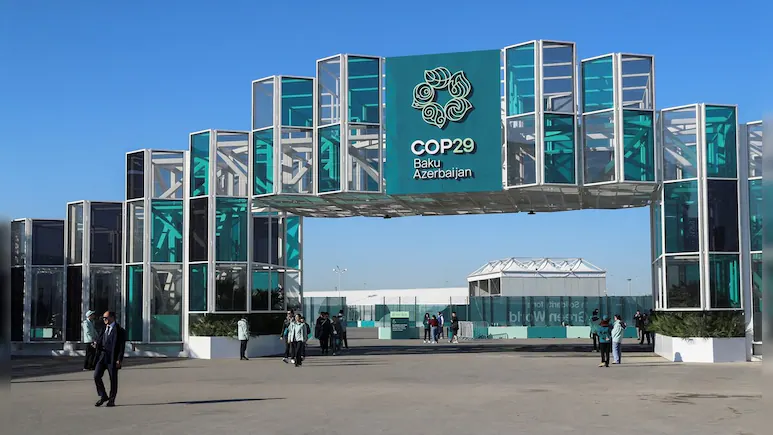The COP29 climate summit in Baku, Azerbaijan, concluded with mixed reactions as delegates packed up and workers dismantled banners at Baku Stadium. While the event aimed to address global climate challenges, its outcomes sparked both optimism and frustration.

$300 Billion Climate Finance Commitment
One of the summit’s major achievements was the agreement to provide $300 billion annually in climate finance by 2035. UN Framework Convention on Climate Change Executive Secretary Simon Stiell called it an “insurance policy for humanity,” recognizing the increasing impacts of climate change worldwide. However, the pledge fell short for many.
India, Nigeria, and Panama were among the countries expressing dissatisfaction. India’s representative, criticized the agreement as “an optical illusion,” claiming it fails to address the magnitude of the climate crisis. Similarly, Nigeria called the financial commitment “a joke,” reflecting widespread frustration among least-developed nations and small island states.

Divides Between Wealthy and Vulnerable Nations
Tensions rose over wealthy nations’ perceived reluctance to contribute more to climate financing. Delegates from developing countries felt sidelined, with some accusing wealthier nations of prioritizing political expediency over meaningful action. Despite these criticisms, the deal was finalized, though its implementation remains uncertain.
Private Sector Investment and Carbon Markets
The summit highlighted the potential of private sector involvement, with multilateral development banks pledging to mobilize $65 billion annually for climate-related projects. Specifics, however, remain vague, leaving many stakeholders questioning how these investments will materialize.
A significant breakthrough came in the form of agreements on carbon offset trading. COP29 established a central registry to issue and track carbon credits, offering hope for businesses focused on carbon removal projects.
Road Ahead: COP30 and National Plans
Looking ahead, nations are expected to submit revised climate plans by February, though many are likely to miss the deadline. Businesses have urged governments to prioritize “investment-ready” initiatives to attract long-term funding.
As the world gears up for COP30, the successes and shortcomings of COP29 will undoubtedly shape future climate negotiations. While the $300 billion commitment marks progress, questions about its adequacy and execution linger, particularly for nations most vulnerable to climate impacts.
The outcomes of COP29 underscore the ongoing challenge of balancing ambition with practicality in the global fight against climate change.
Reference- Reuters article, The Guardian, Business Insider, The Financial Express
